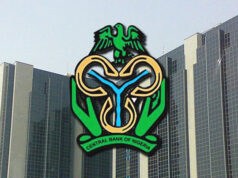In a bid to fund subsidy on petrol in the face of rising oil prices, the Federal Government of Nigeria is planning to utilise 2 billion euros ($2.2 billion) from the eurobond it raised last year.
Also, the Muhammadu Buhari-led administration is targeting more local borrowing in 2022, Nigeria’s Minister of Finance, Mrs. Zainab Ahmed, told Reuters.
Ahmed said the country will not tap the eurobond market this year.
“Rising oil prices has put us in a very precarious position because we import refined products and it means that our subsidy cost is really increasing,” she said on the sidelines of an Arab-African conference in Cairo, Egypt on Tuesday.
Nigeria’s government in January reversed a pledge to end its subsidies then, and instead extended them by 18 months to avert any protests in the run-up to general election next year.
But the price of oil has soared. Nigeria depends almost entirely on imports to meet its domestic gasoline needs, even though it is a crude oil exporter.
The country is also facing shortages after taking delivery of some unusable substandard gasoline.
President Muhammadu Buhari in a letter to parliament in February requesting extra funds to pay for petrol subsidies said the country’s budget deficit would rise to 4% of GDP as the government eyes new domestic borrowing. The deficit was originally set at 3.42% of GDP.
Petrol subsidies cost Nigeria up to $7 billion a year in revenue.
Ahmed said that the government was working with lawmakers to boost revenues and that the rise in oil prices means that borrowings will increase more than planned.
At a virtual meeting of African Finance Ministers and the International Monetary Fund, on Thursday, March 10, Ahmed spoke on the effects of the rise in crude oil price.
She said the rise in prices had further widened the country’s budget deficit.
Buhari to NASS: Approve N2.557trn for subsidy, delete inserted projects
According to her, “We are cleaning up our subsidies; we had a setback as we were to remove subsidy by July this year, but there was a lot of pushbacks. We have elections coming and also because of the hardship that companies and citizens faced due to the COVID and we were told that the timing was not right, so we pulled back.
“But we have been able to quietly implement subsidy in the electricity sector and as it is, as we speak, we don’t have subsidies in the electricity sector.
FG pushes for fuel subsidy removal after Buhari’s exit
“Fuel subsidy is a huge problem for us. It has thrown up our deficit much higher than we planned. What is happening to the global oil prices is also going to, perhaps, worsen matters. But the current review we are doing is to say we will hold the subsidy at the level in which it is planned.”
- Bricklayer jailed 8 months for stealing 12 bags of cement - May 9, 2024
- On resignation of Ihedioha, et al from PDP - May 9, 2024
- Abuja civil servant arraigns for N135m fraud - May 9, 2024










